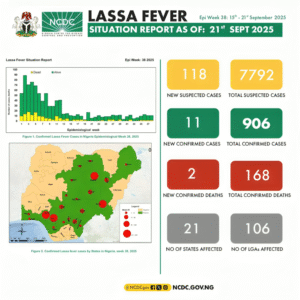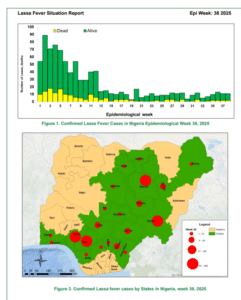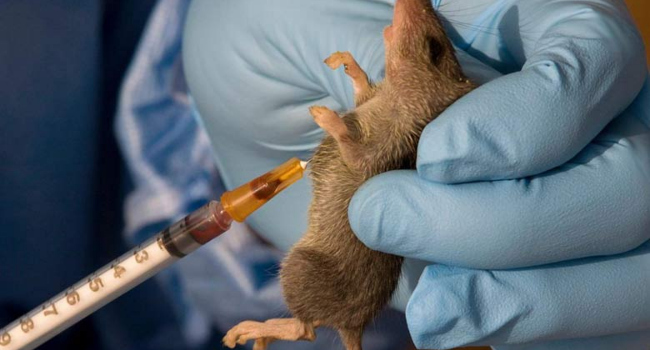The Nigeria Centre for Disease Control and Prevention (NCDC) has confirmed that Lassa fever has claimed 168 lives across 21 states in 2025, with 906 cases recorded so far.
According to the agency’s situation report for epidemiological week 38, Nigeria has documented 4,543 suspected cases, out of which 897 were confirmed positive. The case fatality rate currently stands at 18.7 percent—nearly double the national target of below 10 percent.

The outbreak remains concentrated in four states—Ondo, Edo, Taraba, and Bauchi—which account for 67 percent of all confirmed cases. Ondo carries the highest burden, followed by Edo and Bauchi. Other affected states include Ebonyi, Benue, Kogi, Gombe, Plateau, Kaduna, Nasarawa, Enugu, Delta, Anambra, Rivers, Borno, Oyo, Ogun, the Federal Capital Territory (FCT), and Lagos.
The report also showed that most confirmed infections occur among people aged 21 to 40 years. The NCDC explained that this group is the most socially and economically active, which increases their risk of exposure to the rodent-borne virus.
Lassa fever is an acute viral haemorrhagic disease transmitted through contact with food or household items contaminated by urine or faeces of infected rats. Human-to-human transmission can also occur, particularly in healthcare settings lacking proper infection control.
Though cases usually peak during the dry season (December to April), the NCDC noted that infections are now reported year-round. Some states, including Taraba and Bauchi, have recorded fatality rates higher than the national average.

The agency stressed that early presentation at treatment centres greatly improves survival chances, as the antiviral drug ribavirin is most effective when administered promptly.
To curb the spread, the NCDC said it is scaling up surveillance, expanding diagnostic capacity, and supporting treatment centres in high-burden states. Community sensitisation campaigns are also ongoing to encourage preventive measures such as proper food storage, maintaining clean environments, and avoiding self-medication.
The agency called for stronger collaboration between states, communities, and health workers, urging Nigerians to adopt simple preventive habits like covering food and waste and reducing rodent contact.
While progress has been made in diagnosis and treatment, the NCDC warned that the outbreak remains a serious public health challenge and that Nigeria must remain vigilant to prevent further loss of lives.




